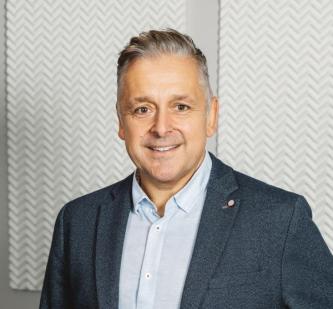
My Health and Wellbeing Workplace Journey

In today’s fast-paced work culture, it is easy to overlook the importance of our health, both mental and physical, within the workplace. Talking to many employees in my role as a recruiter, it’s clear to me that many corporate environments still have a strong “work hard, play hard” culture, with late nights and alcohol often a key feature. I had worked in a large corporate for many years and thought that I had benefited from a really positive experience, and certainly enjoyed the social aspects that went alongside the achievement of business goals. However long hours coupled with high levels of stress can be a recipe for unhealthy habits, and a loss of focus on what really matters. It wasn’t until I took a step back that I realised that focusing more on my wellbeing could have a positive impact on both my career and more importantly my family.
Whilst I am no expert in the field of wellbeing, I wanted to share some thoughts about my experiences for those who may be at the start of a wellbeing journey too. Knowing a change of environment is needed is one thing, but understanding what needs to change, both at work and in your own approach to work is something else entirely. Over the last year I have made it my business to really understand what I wanted to contribute to the workplace, what I wanted in return, and how best I could manage my health and wellbeing so that I could be my authentic self at work, be present for my family and friends and still continue to enjoy a successful career in an industry I love.
So where did my journey begin…
It was during a family holiday last year that I knew I had to make a change.
Do you remember the sick feeling in your stomach that meant it was Sunday evening, the weekend was almost over and it was back to school tomorrow? As I lay in the sun, that was all I could think about. I had loved my employer and colleagues like a family and I had given everything for the cause. I thought I had nothing left to give.
But, at that moment I knew change could be a good thing if I allowed it to be.
After many years working at the same organisation, I was institutionalised and so assumed some of the aspects of corporate culture I was struggling with were the norm. I had many people to thank for getting me to where I was, I learned so much, made friends for life and always felt valued. But I owed it to my family, and to myself, to make a change, and so when meeting the team at Tile Hill, it was not hard to see what a fresh start with a new, growing company could do for my life.
From my perspective, when thinking about wellness in the workplace, there are some simple and effective ways both employers and employees can embrace health and wellbeing in a way that maximises engagement and staff retention.
Upgrade Your Onboarding Process
After so many years with the same employer, I was incredibly nervous about starting somewhere new. In the modern world of work, onboarding is a critical element of workforce retention, but it became clear to me that by prioritising a positive, personalised onboarding experience, my new employers were thinking about me and my wellbeing. I enjoyed a safe landing in my new role, where expectations were clearly set and where I felt valued from day one. And yes, all my IT worked first time!
A Gartner survey from 2023 highlighted the importance of onboarding to HR leaders in tackling the challenges of staff retention. Building onboarding capability creates an emotional proximity between the employer and employee, through a shared sense of mission. So great onboarding reduces attrition and helps improve employee wellbeing.
Staff Socials
One of the great things about my new employer is the diversity of the workforce. We promote, and I believe provide an inclusive culture for staff where we can be ourselves, where our differences are celebrated and the value those differences bring recognised,
Having staff socials can help your team bond and increase team morale, so hosting an after work get together is always a great idea, but are the events your company arranges genuinely inclusive? What more can we do as employers and managers to create inclusive experiences that continue to build team spirit? At Tile Hill we have quite a competitive culture, with sport and physical activity often featuring in our programme. At the same time, we bring in other more sedate activities where conversation and simply sharing time together are the priorities.
For instance, can you get more creative with what you can offer. Rather than a few drinks at the pub, how about an Afternoon Tea on a London Bus? Options can include cooking lessons, trivia nights, inflatable games, escape rooms, murder mysteries and so much more! This year, we have a team entering the 3 Peaks Challenge, we will all spend a day volunteering on a farm that is championing changes to the world food system and we are arranging a team away day with an arts and crafts focus.
Socials don’t even have to be a big event. A study by Glassdoor showed that 79% of employees would prefer new or additional benefits to a pay increase. That is a huge number! Making these perks sustainable for your company is key. Can’t justify a night out every week? Try taking a step away from your desks for an hour and encourage your staff to take part in an office scavenger hunt or gym session.
Incentivising Staff
Our motivation to work, to excel, comes from different places. When we work hard, we want to be rewarded, but what shape that reward should take varies from person to person.
If staff wellness is to truly be a focus within your organisation, then having systems in place to recognise and celebrate people who go above and beyond is critical. A recent Gallup poll identified a major deficit in workplace recognition, despite employers and managers thinking they did recognise achievement effectively. Only 23% of employees identified as working in a company with a system of workforce recognition. The survey also identified that recognition, even when given, is rarely (in less than 10% of cases) personalised. An incentive is only an incentive if you want it!
The survey also highlighted that where companies had a strong system of recognition, employees are much less likely to feel burned out, and much more likely to enjoy a thriving home and family life.
Flexible Work Arrangements
Much has been written about hybrid working and I don’t propose to reignite the debate about working from home. Looking at it from the perspective of health and wellbeing, my experience of working for both a large company adjusting to the new normal during the pandemic, and now for an early stage, small company built on agile principles has been instructive. Wellbeing focused working arrangements should be personalised. In particular, managers need to think about how they spot high performance from those that work remotely. And they need to consider how they make office days fulfilling, purposeful, productive and promoting a shared wellbeing. As someone who lives two hours away from work, I have found I have really enjoyed the collaborative spirit and action orientation of my days in the office. Equally, my company has invested time and money in ensuring that when we are apart, we have the tools and the culture to collaborate effectively.
Personal Plan of Action
Part of my preparation for my new role at Tile Hill was to think about writing my first business plan. I knew that for me to be a success, this plan had to enable me to both deliver on important business objectives, but also to do so in a way that supported my health and wellbeing. I spoke to my Directors about this and they were hugely encouraging, to the point that I now have personal fitness milestones embedded in my business plan. By being fitter in mind and body, I am better placed to deliver my business plan, as well as helping build my resilience for the inevitable bumps in the road that accompany a career in recruitment!
Finally…
I recently had yet another birthday. Despite being another year older, I feel ten years younger. I have found an employer who lets me bring my whole self to work, who is as supportive of my personal as my professional ambitions, and who provides an inclusive, personalised place for our team to thrive and flourish. If you’ve been thinking about your own future, remember that the grass can be greener. Prioritising your own wellbeing should not, and does not, mean de-prioritising your career.
Similar blogs
Sign up to newsletter
By submitting your details you agree to our T&Cs




